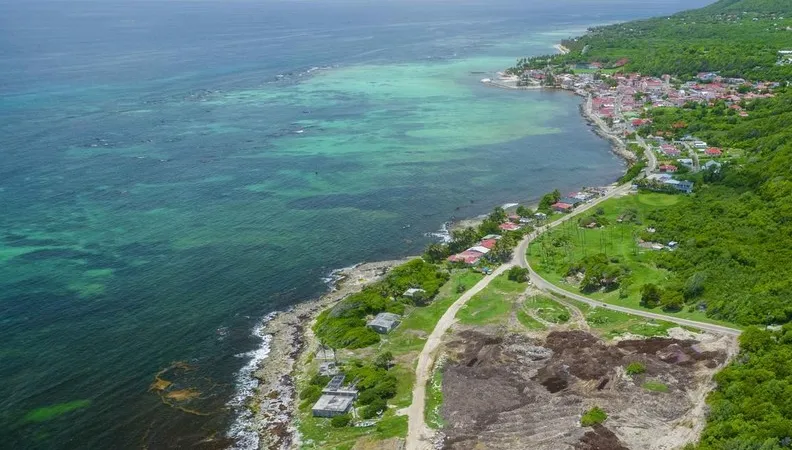Share the page
Overseas France: shared solutions for shared oceans
Published on

Faced with disruptions linked to climate change and the degradation of their ecosystems, the French Overseas Territories are mobilizing. Through nature-based solutions, regional cooperation, and scientific research, these predominantly island territories are paving the way for collective and sustainable adaptation.
Home to 12 territories, nearly 3 million inhabitants, and 80% of France's biodiversity, the French Overseas Territories are particularly vulnerable to ocean-related disruptions – more intense cyclones, marine heatwaves, mangrove loss, acidification, coastal erosion – all of which directly affect local populations.
The French Overseas Territories: pioneers of adaptation
This context sees the French Overseas Territories become laboratories for innovation . For example, the implementation of nature-based solutions (NBS) "holds significant potential in tropical island environments, where societies rely heavily on ecosystems," explained researcher Virginie Duvat during AFD's Perspectives Outre-mer (Overseas Perspectives) conference. She presented a study (English subtitles available) identifying several conditions for the effectiveness of NBS in these territories. Chief among them: the importance of co-benefits, meaning NBS must address both environmental protection and local community needs. Beyond technical performance, NBS must be context-specific. This is the aim of the CLIPSSA applied research project, led by AFD, IRD, and Météo France, which shows that climate science and local ecological knowledge can be combined. The goal: to build the adaptive capacity of four Pacific territories and countries in response to climate change.
"The ability to quantify and objectify the results [of NBS] – those are the decisive factors," said Léopold Biardeau, interministerial delegate for climate and sustainable development in French Polynesia.
The social acceptability of NBS has already inspired some public actors: New Caledonia's climate adaptation strategy, adopted in 2025, included "a public consultation phase involving thousands of contributions, reviewed by experts," explained Théo Miloche, ecological transition advisor to the government of New Caledonia.
Learning, innovating, acting together
From marine protected areas in the Indian Ocean, to climate adaptation on the Pacific Islands, or sargassum algae management in the Atlantic Ocean – effective action must occur at a regional level. That is the approach taken by AFD through its Three Oceans strategy. Regional cooperation is vital for French Overseas Territories and their neighbors, since oceans know no borders.
This is also true in the maritime economy: "90% of international trade by volume moves by sea," noted geographer Colette Ranély Vergé-Depré. This creates shared environmental and security issues in ports and at sea. "There is a real desire for cooperation between cities and ports beyond the national scale," added Jean-Pierre Chalus, president of the Grand Port Maritime of Guadeloupe and director of the Union des ports de France (French Ports Union).
Science to guide action
Research is also key for ocean preservation. "Without science, it's impossible to create a marine protected area," said Florence Jeanblanc-Risler, prefect of the French Southern and Antarctic Lands (Terres australes et antarctiques françaises – TAAF), which hosts France's largest marine protected area.
Research also addresses other challenges, such as sargassum seaweed, which has severe economic, health, and environmental impacts in the Antilles. In addition to ongoing efforts to study this poorly understood phenomenon, research can inform public policy. A study by the University of the Antilles and Guyana, coordinated by AFD, shows that certain population groups – including business owners and tourists – are willing to contribute financially to fight sargassum. These funds could help support local governments or finance the development of innovative solutions.
At the Perspectives Outre-mer conference, AFD also presented the 2025 AFD Overseas Young Researchers Award to the winners of a video competition: Leïla Fardeau (1st prize), for her work on the role of family solidarity in Polynesia and the need for its inclusion in statistics; Nicolas Lucic (2nd prize), on the link between political status and economic development in small island economies; and Audrey Pastel (3rd prize), on Martinique's climate adaptation capacity. "We must give younger generations the power, tools, imagination, and agency to find solutions for oceans and the sustainable development of the French Overseas Territories," said AFD CEO Rémy Rioux during the conference.
